
Correct Your Thoughts
Just because you think it, doesn't meant it's true.
Do you remember laying in bed as a kid feeling terrified that there was a monster hiding under your bed? Even though you hadn't actually seen or heard it, you just knew it was there. So you pulled your blankets up over your head and made sure not to leave an arm or leg sticking out. Somehow, you thought and hoped, your blankets would keep that monster out. Of course, there was no monster under your bed. It was just a thought, an irrational error in thinking that caused all that stress, anxiety and fear.
It isn't only children that make errors like this, adults make them too. Maybe we don't believe in monsters anymore, but most of us do tend to imagine unpleasant things that just aren't true. And the more often we do this, the more likely we are to feel stressed out, anxious and depressed.
Here are some of the common errors in thinking that we all tend to make from time to time:

CATASTROPHISING
ERROR: When you think of the worst thing that could happen and then believe that’s exactly what will happen. When you blow things out of proportion, turning little problems and setbacks into catastrophes.
CORRECTION: You dont know exactly how it will be, so just wait and see. Yes, the worst possible thing might happen, but maybe the best possible thing will happen instead. The fact is we never know exactly how things will turn out. Remind yourself of this fact if you find yourself stuck in a catastrophic “WHAT IF!?” thinking trap.
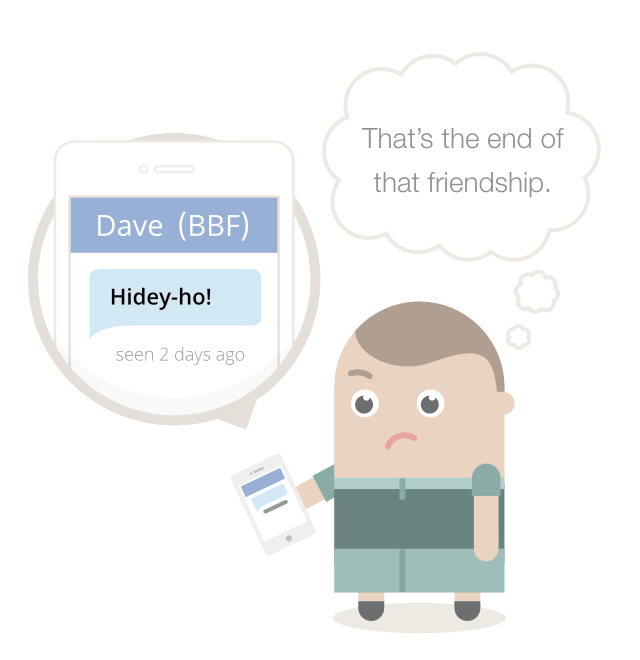
ALL OR NOTHING THINKING
ERROR: When you think in absolutes – it’s ‘good’ or ‘completely awful’, a ‘success’ or a ‘complete failure’, you’ll try your hardest, or not at all. With all-or-nothing thinking, it’s either black or white and there are no shades of grey.
CORRECTION: Very few things (if anything) deserve an ‘absolute’ label. There’s always a little Yin with the Yang – a bit of good with the bad, and a bit of bad with the good. And things don’t need to be ‘perfect’ to be good enough. Challenge ‘all-or-nothing’ thinking by looking for those shades of grey.
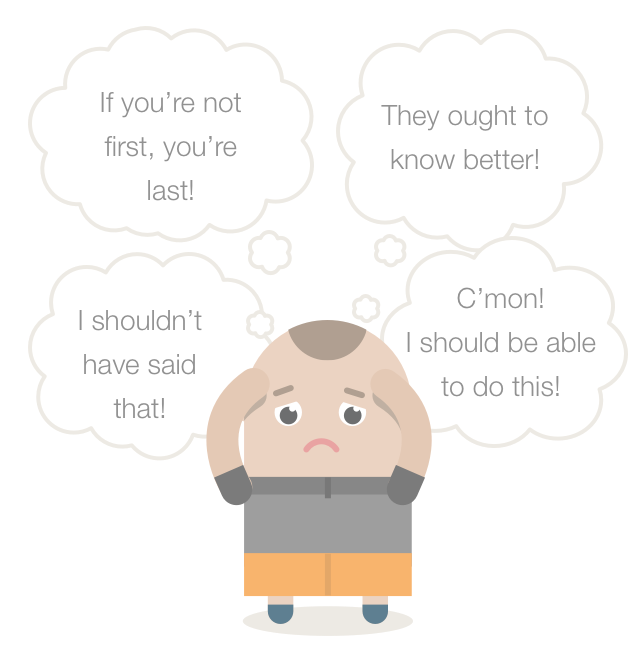
SHOULDING
ERROR: When you get angry or upset because things don’t turn out how you expected. When you have rigid expectations about what you and others ‘should’ do.
CORRECTION: As Bruce Lee said, ” I’m not in this world to live up to your expectations, and you’re not in this world to live up to mine.” Getting angry and upset won’t change the situation. Maybe your expectations were unrealstic, or maybe circumstances changed. Whatever the reasons things aren’t how they ‘should’ be, try to focus more on accepting rather than expecting.
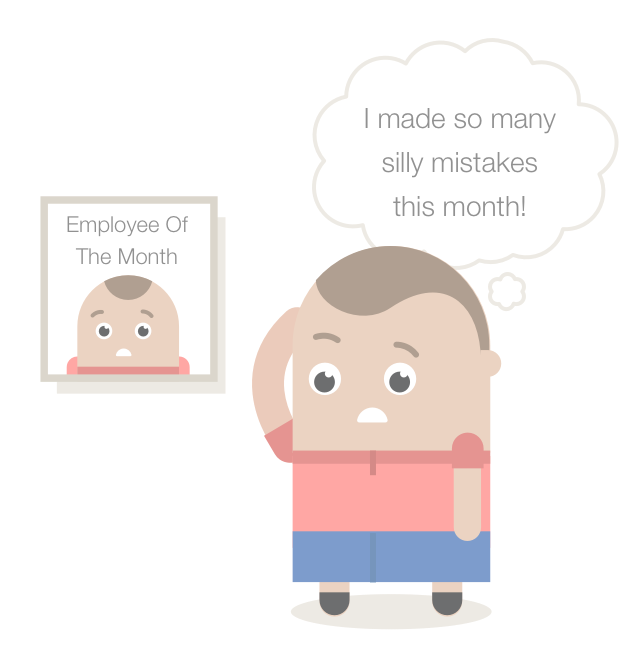
FILTERING
ERROR: When you automatically filter out positive information and focus on negative, self-defeating information.
CORRECTION: Why should negative information get all the attention? Next time you notice you're zooming in on bad news, take a moment to focus on some of the good things going on in your life. It's only fair.
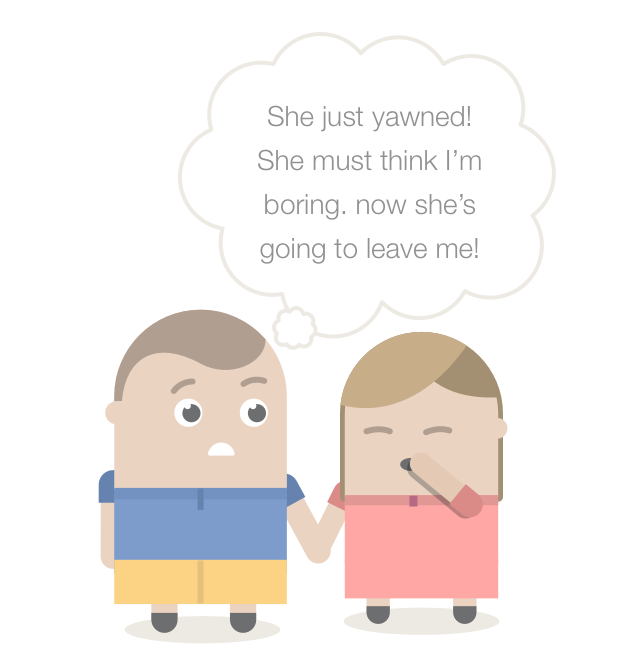
JUMPING TO CONCLUSIONS
ERROR: When you make assumptions and jump to negative conclusions about what other people think about you, without any real evidence.
CORRECTION: You can't control what people think about you. And you would need mind reading powers to know exactly what they think about you, but if you're going to try guess at it, look for the facts. Base your conclusions on hard evidence, not once-off incidents (like a yawn).
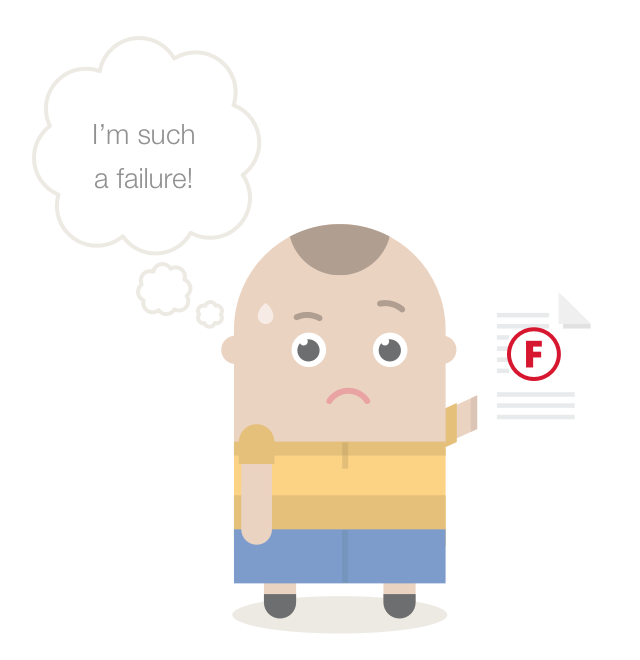
LABELLING
ERROR: When you label yourself based on some shortcoming, mistake or failure.I failed the test, so Im a failure. I said something stupid, so I must be stupid. Labels can also be applied to other people,reducing them to a single, negative characteristic.
CORRECTION: Labels are for things like clothes, stationary and luggage, not for people. It's unfair to pin a limiting label on yourself or anyone else. People are far too complex for that. If you catch yourself dishing out labels, look for evidence that proves those labels wrong, and then put the label away.

DOWNPLAYING THE POSITIVE
ERROR: When good things happen you dismiss them as 'no big deal' or just plain nonsense. For example, you dismiss a compliment as being insincere, or you win an award for something, but you tell yourself it was no great achievement.
CORRECTION: It's good to be humble, but that doesn't mean you can't celebrate your achievements and accept those compliments. When good things come your way, hold back on the cynicism and savour them. Savouring will ensure you give the positive things the attention they deserve.
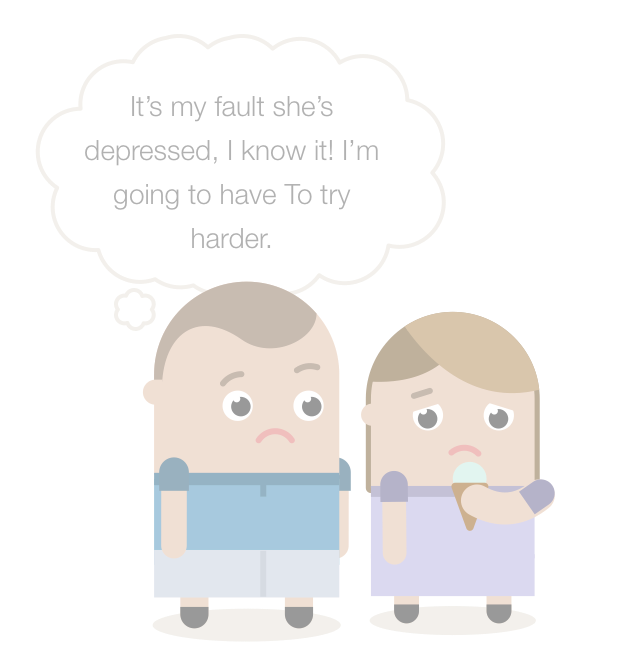
PERSONALISING
ERROR: When you take responsibility for events that are out of your control (things that are impossible for you to control), and you are quick to assume that other people’s behaviour is some kind of direct reaction to you. For example, some people start laughing nearby and you think they're laughing at you.
CORRECTION: You can't control how other people feel. That's on them. Take control of the things you can control and try to let go of the rest.

OVERGENERALISING
ERROR: When you make generalisations based on a few rare events. For example, if the newspaper reports bad news, you think there's nothing but bad news out there. When you're overgeneralising, it just takes a few negative events to convince you that a negative pattern exists and will persist. For example, if you're struggling to find a job, you think, "I'm never going to find a job!"
CORRECTION: We all have a tendency to give extra attention to negative information, because we don't want to be caught off guard by anything that might pose a danger to us. The problem with this negative bias is that it can make it seem like 'bad things' are more prevalent and more persistent than they really are. For example, the news media will have us believe we are living in extremely violent times and that the world is coming to an end. The truth is, we've never had it so good. We are actually living in the most peaceful time in our history. The moral of the story: collect and check your facts before making sweeping generalisations.
Change your thoughts to change your world
When you're challenging errors in thinking, remember to use a kind inner voice. Beating yourself up with harsh words and self-criticism will only bring you down and plant the seeds for more self-defeating errors in thinking. Be kind, and be persistent...
Errors in thinking are a bit like weeds – they tend to keep popping up even after you've corrected them a few times. This is how it is with all habits of thought. It takes time and repetition to rewire your brain. You just need to keep on correcting them, again and again, until they finally vanish for good.
SOURCES:
Types of errors in thinking
Burns, David D. (1989). “The Feeling Good Handbook: Using the New Mood Therapy in Everyday Life” .New York: W. Morrow
Challenging irrational thoughts
Longmore, Richard J.; Worrell, Michael (2007). “Do we need to challenge thoughts in cognitive behavior therapy?”. Clinical Psychology Review 27 (2): 173–87
TECHNIQUE
Overcome your fears
How to remove your fears step by step and little by little with Exposure Therapy.TOOL
Desensitise your brain
The Desensitiser combines 3 techniques to help take the bite out of disturbing thoughts.INFORMATION



